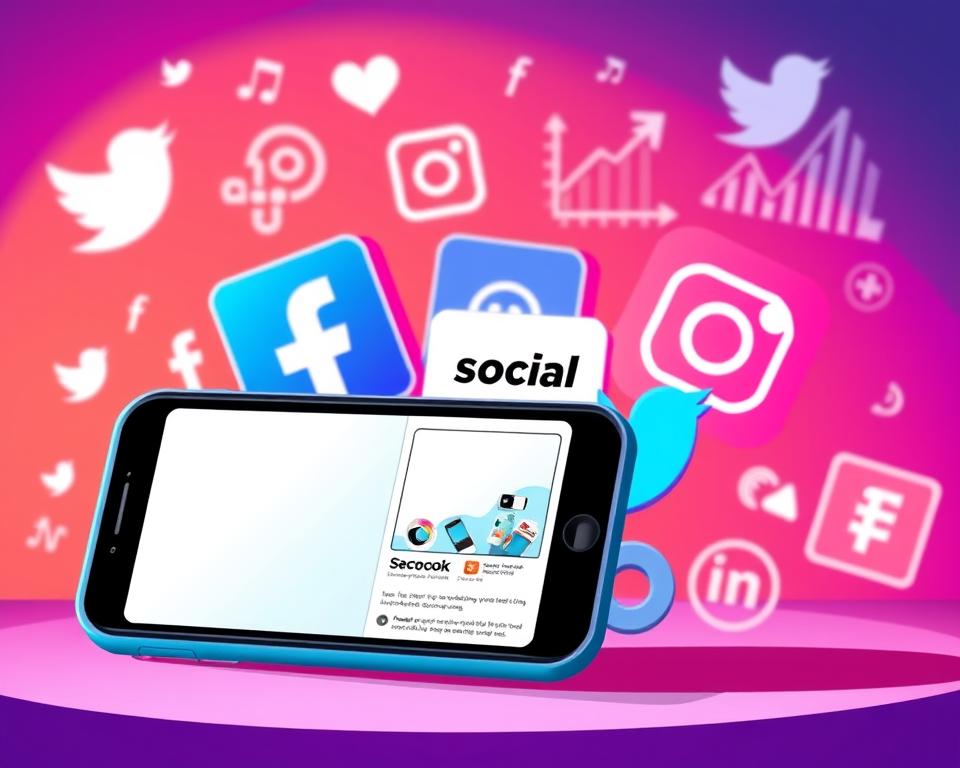1on1 Marketing: Tap Into Individualized Customer Connections.
Ever ponder why some brands connect deeply with their audience while others falter? The answer is 1on1 Marketing, a revolutionary approach that converts generic marketing into personalized experiences. It focuses on individual tastes, creating a bond that traditional marketing can’t match. It repositions the focus from one-size-fits-all messaging to targeted tactics that talk directly to each customer’s core.
By adopting 1on1 Marketing, businesses can build more meaningful connections. They can craft marketing plans that truly resonate with their audience. Here, we delve into the essence of 1on1 Marketing and how it allows brands to interact with customers on a personal level, official site.
How Marketing Strategies Have Transformed
Over time, the marketing landscape has experienced a dramatic shift. Initially, marketers used one-size-fits-all strategies, relying on broad messaging for average consumer behavior. Today, the market demands a focus on customer engagement through tailored dialogues. This shift highlights the necessity to see customers as individuals rather than as a homogeneous mass.
With marketing’s evolution, it’s clear that generic tactics fall short. Today’s methods focus on building real relationships rather than simply pushing products. By leveraging data insights, marketers move to tactics that address each customer’s unique preferences.
This evolution not only deepens customer connections but also boosts brand loyalty and retention. In a world where consumers face endless choices, brands that offer personalized experiences stand out. They create platforms for dialogue and engagement, ensuring customers feel appreciated.

| Strategy Type | Characteristics | Example |
|---|---|---|
| Generic Approach | Broad messaging, general appeal | Mass email blasts |
| Tailored Tactics | Customized dialogues, fine-tuned reach | Custom product suggestions |
Why Personalization Matters in B2B Marketing
The B2B marketing landscape is rapidly changing, making personalization essential. Marketers aim to boost conversion rates through personalized 1:1 marketing. Research indicates that many view this as critical for retention. In a rapid-fire environment, engaging audiences effectively is vital.
Personalized marketing tackles the challenge of grabbing attention. It ensures content resonates with each customer’s unique preferences. Focusing on personal experiences allows brands to stand out amid competition.
As touchpoints multiply, the demand for personalization grows. Companies embracing tailored tactics meet needs and build lasting bonds. Such an approach provides a competitive advantage in today’s market.
What Is 1on1 Marketing?
One-to-one marketing is about tailoring experiences to meet each customer’s unique needs. It uses data insights to craft personalized engagement strategies. This approach creates strong customer connections by focusing on individualized experiences.
For example, a coffee shop where the barista remembers a customer’s favorite order illustrates one-to-one marketing. This simple gesture shows how attending to preferences drives satisfaction. It transforms a routine purchase into a memorable experience, enhancing loyalty.
Implementing one-to-one Marketing requires a deep dive into customer data. They analyze behaviors and preferences to tailor their messages. This guarantees marketing efforts hit the mark with distinct tastes, producing stronger connections and greater satisfaction.
As businesses seek personalized engagement, they realize customization is essential for lasting success. Those mastering bespoke experiences reap substantial rewards.
Advantages of Tailored Engagement
Personalized customer engagement brings numerous benefits to modern brands. It dramatically increases satisfaction by delivering experiences that align with individual needs. Research reveals that 80% of consumers favor brands offering customized interactions. This highlights the significant impact of customized marketing.
Loyalty programs that incorporate personalization tend to retain customers better. By targeting distinct pain points and tastes, companies foster a sense of being valued. This connection fosters repeated purchases, driving profitability.
Personalized marketing also leads to higher conversion rates. Custom suggestions and targeted messaging guide customers from consideration to purchase. Emphasizing these benefits elevates brand image and primes businesses for competitive success.
| Benefit | Description | Impact |
|---|---|---|
| Happy Customers | Personalized experiences enhance overall customer happiness. | Increased chances of repeat purchases. |
| Loyalty Programs | Custom offers boost customer engagement. | Enhanced retention and brand loyalty. |
| Sales Upsurge | Targeted content drives customer actions effectively. | Growth in sales and revenue. |
Challenges in Implementing Personalized Marketing
Brands face numerous hurdles when aiming to implement personalized marketing. Collecting quality data is a primary obstacle. Robust data is essential for effective segmentation. Without it, marketers struggle to craft messages that truly resonate, leading to missed opportunities and inefficient campaigns.
Companies must balance personalization with broad messaging. Big enterprises struggle to keep a personal touch amid heavy automation. This can result in losing the personal touch that customers cherish. – Marketing 1 on 11on1 official company website
Smaller businesses also have their own set of challenges. They often struggle to define their messaging, hindering their ability to leverage personalized marketing’s benefits. Recognizing these challenges is essential for marketers aiming to improve their strategies and engage customers more effectively.
Tools Fueling Personalized Marketing
Innovative tech is transforming personalized engagement. CRM systems are pivotal for managing customer data. They organize data, essential for crafting bespoke experiences. A robust CRM system allows companies to grasp customer preferences and behaviors more deeply.
AI in marketing improves personalization by enabling more accurate targeting and automating tasks. ML algorithms process large datasets to reveal trends and behaviors. This enables strategy refinement. Automation reduces manual effort and optimizes campaign impact.
Studies reveal that 72% of marketers focus on CRM systems for personalization. Marketing automation tools are used by 55% to streamline campaigns. These technologies empower businesses to offer customized experiences on a large scale. This ensures marketing efforts connect with individual consumers, avoiding generic messages.
The integration of these technologies in marketing fosters a more dynamic approach to customer engagement. The fast-evolving scene drives adoption of cutting-edge tech. These tools not only improve efficiency but also strengthen connections with their audiences.
Best Practices for Personalizing Marketing Efforts
Successful personalization rests on core best practices. They guarantee resonance and improved engagement. Key components include:
- Audience segmentation is essential for targeting specific groups based on common traits. This method allows for more precise messaging, boosting engagement rates significantly.
- Using refined communication improves the customer experience. Consistent, relevant communication across channels builds trust and encourages continued interaction.
- Adopting experimental approaches, like A/B testing, is critical. It helps pinpoint the most impactful marketing approaches by comparing different messages and metrics.
Leveraging customer data is crucial to grasp behaviors and preferences. Regular analysis refines strategies. Following these practices enables brands to develop personalization that truly resonates with their audience.
Innovative Personalization Tactics
Creative marketing strategies are key to improving personalized experiences at every customer touchpoint. Brands now use personalized emails that match individual tastes, making messages more impactful. Analyzing purchase history allows spot-on product suggestions, driving sales.
Creating videos for specific audience segments is another smart move. It grabs attention and builds a strong emotional bond between the brand and its audience. Adaptive loyalty programs that align with behaviors reward meaningful interactions, enhancing the journey.
| Creative Tactic | Description | Benefit |
|---|---|---|
| Tailored Emails | Emails crafted to individual preferences and behaviors. | Boosts engagement and conversion rates. |
| Suggested Products | Suggestions based on previous purchases and browsing history. | Enhances sales and customer satisfaction. |
| Tailored Videos | Video content customized for specific segments. | Deepens brand connection and engagement. |
| Loyalty Programs | Rewards systems that adapt to individual behaviors. | Increases loyalty and repeat business. |
Brands can gain a lot by integrating unique offers across different platforms like social media, emails, and in-app notifications. Each interaction is a chance to show the brand’s dedication to personalized marketing. It creates memorable experiences, making brands stand out in a crowded landscape.
Emerging Trends in Personalized Marketing
The world of 1on1 marketing is rapidly changing, driven by the latest marketing trends. Marketers will use AI to create personalized campaigns that meet individual needs. It improves campaign outcomes and forges connections by delivering timely, relevant content.
Another key trend is the importance of omnichannel experiences. Consumers demand seamless transitions across social, email, and other channels. Brands must maintain uniform messaging to satisfy these demands. Knowing interaction points helps craft a cohesive journey, enhancing loyalty.
In response, ethical data usage will be vital for preserving consumer trust. Amid rising privacy concerns, transparency and responsibility in data handling are non-negotiable. Focusing on ethical data usage not only meets regulatory standards but also builds stronger customer relationships, leading to increased loyalty in the future of 1on1 marketing.

